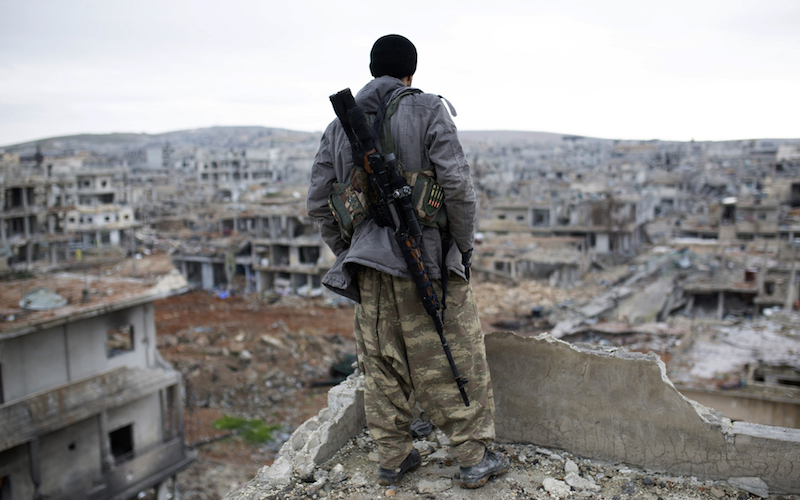
The New Middle East: Turkey, Iran and an Independent Kurdistan
The current geo-political formation of the Middle East was born over the ashes of World War I and the fall of the Ottoman Empire. Today, in the aftermath of the Arab Spring and the rise of the Islamic State (IS) in Iraq and Syria have similarly paved the way for dramatic changes in the region. One thing however remains the same – the exclusion of the Kurdish people. As it did a century ago, the new map of the Middle East has once again disregarded the future of the Kurdish people. The Kurds as a nation were ignored in the previous geo-political formation of the region and their future in the new Middle East does not seem to hold much promise either. It would appear that by and large, the current and future of the Kurds is closely tied to the policies of their formidable neighbors, Turkey and Iran.
By late 2013, Ankara initiated a new approach toward the Kurdish issue by establishing closer ties with the PKK in Turkey and the Kurdish Regional Government in Iraq. This move raised the hopes of the Kurdish people of possible support from Turkey against IS. However, the opposite proved to be true – despite initial optimism, the Kurds were abandoned by Turkey in the face of IS attacks in both Iraq and Syria.
The lack of a promising prospect for a full-blown US-led military intervention in both Syria and Iraq has raised much global and public pressure against the Turkish government and its military for remaining silent despite the ongoing bloody clashes among IS, Iraqi central government forces and the Kurdish militia in both Iraq and some parts of Syria. In a more recent development, the Turkish government is also under criticism for denying the US-led coalition permission to utilize its bases against IS.
From early on in the Syrian crisis, Turkish foreign and security policies were firmly set toward the support of opposition groups and activities that contributed toward the toppling of President Assad. However, Turkey also had its reservations with regard to the support of Kurdish opposition groups in Syria, for fear of upsetting the balance of power in both Syria and Iraq in favor of the Kurds. Ankara was of the opinion that support of anti-Assad Kurdish groups would have strengthened the Kurdish cause for independence which may in turn threaten the future of Turkish national security. Concurrently, Turkey considered the Syrian crisis a suitable platform through which Iran’s strategic Shia hegemony in the region could be contained. The on-ground realities however, failed to match Turkey’s expectations.
The rise of IS, the US’s need to extend a deal to Iran over its nuclear program, and strategic miscalculations of the Kurdish Regional Government (KRG) in Iraq proved collectively to be game changers for Turkey – factors that ultimately proved favorable for Iran. In the absence of practical Turkish assistance, the KRG turned to Iran for assistance in fighting IS. The KRG’s pleas for help were promptly answered by Iran, which became the first country to overtly supply the KRG with adequate weaponry and military training.
This ultimately gave Iran the upper hand in both the political and military affairs of Iraqi Kurdistan, and curtailed Turkish influence in the region. This bold move by Iran in wresting authority in the region was tolerated by the US, as the Obama administration was in need of brokering a deal with Iran regarding its ongoing nuclear negotiations. Consequently, through its role in battling IS and by introducing itself as the Kurds’ sole regional supporter, Iran has managed to strengthen its position against global powers with regard to its nuclear programs.
In contrast to Turkey’s aspirations, the recent developments in Syria have softened the US position against President Assad. With the world scrutinizing Turkey for its passive stance on the Syrian crisis (especially its silence in the case of Kobani), Tehran – at least for the moment, appears to be the winner in this current crisis gripping the Middle East.
Turkish influence in the region appears to be waning, while Iran’s influence in Kurdish territories continues to escalate; these factors – compounded with Iran’s uncompromising position against an independent Kurdistan, would mean that the Kurdish vision for an independent state in the new geo-political formation of the Middle East has, once again, become an unattainable dream for the Kurdish people.


